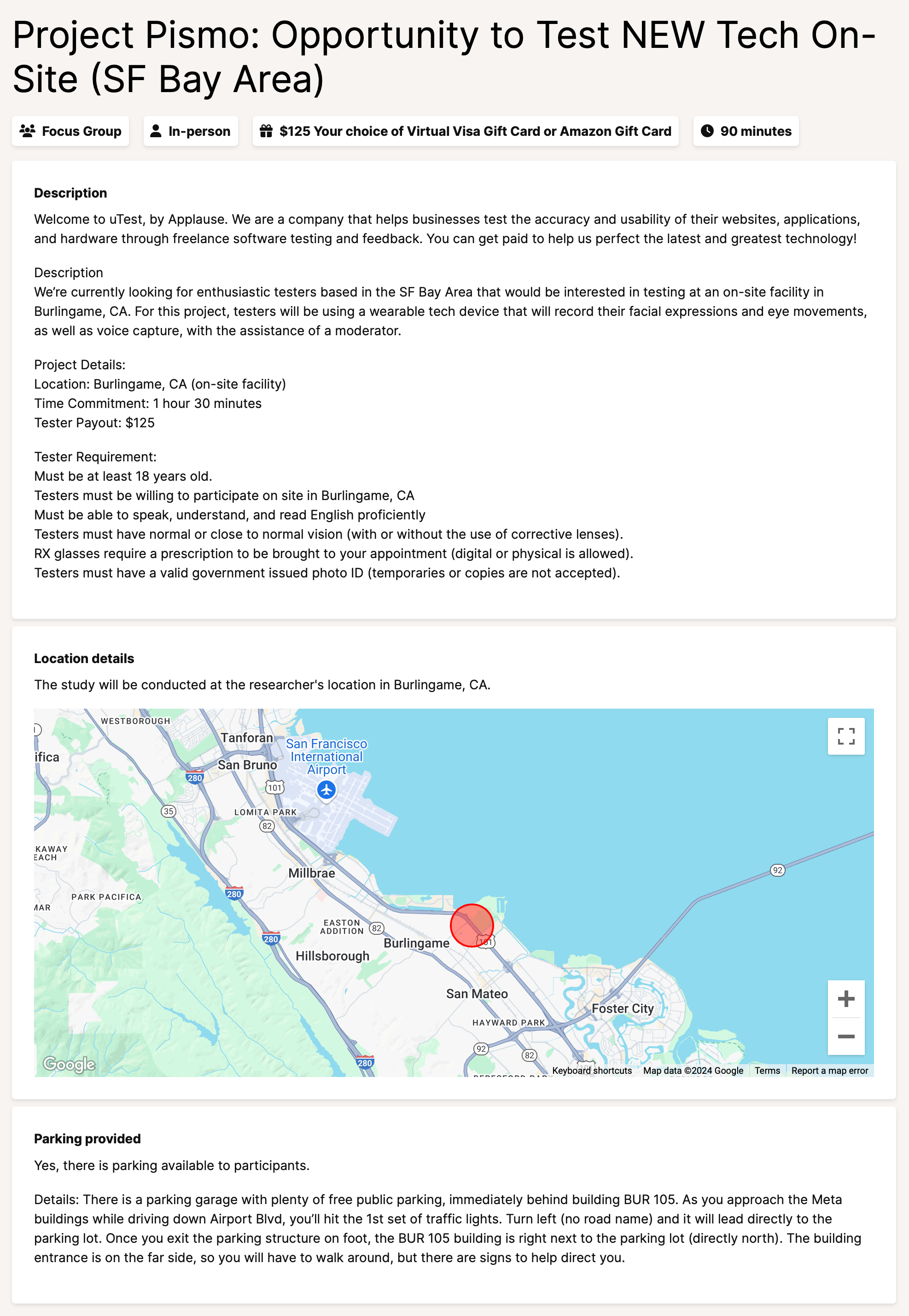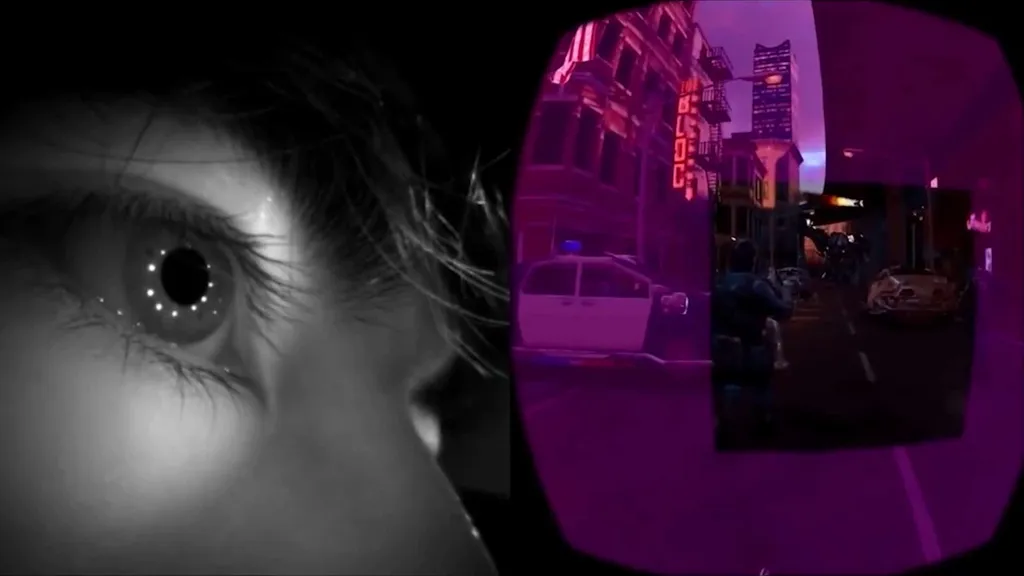A request for focus group testers for a new Meta device might reveal Quest 4 features.
The listing on User Interviews, spotted by VR enthusiast Luna, is titled "Project Pismo: Opportunity to Test NEW Tech On-Site (SF Bay Area)", and the location is listed as a Meta building in Burlingame, California.
UPDATE: around six hours after this article's publication, the listing was taken down. The screenshot below shows the listing as it was.

The listing describes a "wearable tech device that will record their facial expressions and eye movements, as well as voice capture". The title is particularly interesting because according to a July report from The Information, Pismo is the codename for the in-development Quest 4 family of headsets, consisting of a budget model and a premium model codenamed Pismo Low and Pismo High.
Of course, this focus group testing doesn't in any way guarantee that either Quest 4 model will actually have face or eye tracking. The Information's report marked the headsets as set to arrive in 2026, two years away, so the overall purpose of the test could be to decide whether or not to go ahead with including these features.
Meta's only headset to date with either eye tracking or face tracking was Quest Pro, which sold very poorly at its $1500 launch price and had to be cut to $1000 just four months later. Meta may thus be cautious about the added cost of these features.
Eye tracking does seem like a likely feature for the premium Quest 4, though, given how many advantages it would bring. It could allow for guided or even automatic IPD adjustment, realistic eye contact in social VR platforms like Meta's own Horizon Worlds, dynamic distortion correction, and eye-tracked foveated rendering to increase resolution where the wearer is looking. Further, adding eye tracking would allow Meta to copy Apple's highly praised gaze-and-pinch interaction system, which Meta reportedly also plans to include in its ultra-light 2027 headset. Whether or not eye tracking could be included in the budget Quest 4 model is less clear.
As for face tracking, while it may seem unlikely for Meta to add cameras specifically for this, it's possible Quest 4 could add downwards-facing cameras on the bottom for both face and hand tracking, as Apple Vision Pro does. Meta could also use these cameras to enhance inside-out body tracking.
But again, the Quest 4 family is reportedly two years out, so Meta is likely still deciding exactly what they will be, and nothing is certain yet. We'll keep a close eye out over the next few years for any further clues of Quest 4's specs or features.




























